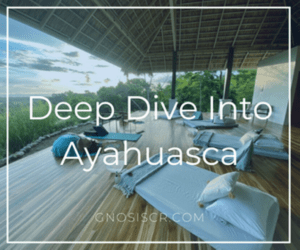Today, innovative sustainable lifestyles are a way of thinking before anything else. They are a positive attitude. Homesteading starts as a small spark when you look at something you just bought and realize that you can make it produce on your own or when you realize that our modern, consumer-driven society is not a sustainable model. The next thing you know, you’re buying seeds.
Before you jump in, take a few minutes to consider what you want to accomplish with your homesteading. Think about your life and what you want it to be. Make sure everything you do at home moves you closer to your goals and supports your ideal life. Too often people think that the occupation has to be done a certain way, but it is a very personal thing.
A little planning can go a long way, be sure to plan your property and all your small farm locations. Consider how you will bring the materials, the daily tasks you need to do, what tools will be needed most often, etc. Put the things that need the most attention near your back door, while the things that don’t need as much attention can be placed further away from the house.
A good homesteader learns to be more of a producer and less of a consumer, realizing the joy that can be found in simple things. Learning how to heat the house with firewood, growing one’s own food, cooking from scratch, herbal remedies, taking care of animals, etc.
You develop a new way of seeing the world
Instead of worrying about having the career, the house, the car that society thinks you need, realize that none of it brings lasting joy. However, when you feel the result that is the fruit of your own labor, you experience a joy that you cannot find anywhere else.
It’s a joy that only comes from working with your hands, being patient, nurturing, and producing something most people take for granted. Learning these skills is liberating as you realize you don’t have to depend on another person for your most basic needs.
A minimalist lifestyle
This lifestyle seeks to get rid of the unnecessary to prioritize the essential, which depends on each person. Among other benefits, it is associated with fewer worries and greater self-awareness. Minimalism is embraced, a lifestyle that prioritizes the motto “less is more” and “makes you aware of what is essential”. “It gives you a lot of peace.”
Beyond being a tool against excessive and impulsive consumption, minimalism can also bring various benefits. According to psychologists, this movement can help us “get to know ourselves better”, as well as improve concentration, order, creativity and mental health, since “it is associated with fewer worries”. It is a lifestyle that “consists simply of eliminating the unnecessary in order to focus on what is important”, and the conception of “the essentials” is different for each person.
People who follow a minimalist philosophy seek happiness not in things, but in “leading a full life.” They understand that there are various “anchors” that can keep us from that end and that they are not only related to consumption: they can also be found in unsatisfactory relationships or jobs, for example. Only by eliminating these “excesses” do they believe they can focus on the parts of life they consider crucial: health, relationships, passions, growth and contribution to the world. “To let go is to free yourself.
In a hectic, stressful world, and in which consumism is often used as an unconscious coping strategy, this lifestyle proposes reflection and questioning of possessions, which are stripped of all emotional value. That is to say, you did not consist only of having less things, but it implies a change of mentality.
How to achieve it?
Reflect on your priorities and define what things are most important to you. There are no possible mistakes and those priorities change over time. Chaos and disorder derived from excess generate stress. Therefore, minimalism is also good for combating stress.
Becoming a minimalist person means being clear about your priorities and organizing your life around them, limiting the resources you consume (time, money, energy…) to everything that is not aligned with your priorities.
The first step, once you define your priorities, is to get rid of things. Free yourself from them. In general, the easiest thing to do is to get rid of material objects that you accumulate and do not use them. The most traditional wisdom reminds us that attachment to material things somehow makes us slaves.
Minimalists say that we have to project ourselves into the future, not into the past. Thus, the attachment must be towards people, beginning with oneself, and not towards material possessions.
They also invite you to control the consumption of information. Since we are exposed to many stimuli, in the end we lose focus and valuable time without being truly well informed in many cases. The accumulation of experiences instead of objects is also another of its characteristics. Finally, it is committed to controlling the mind, focusing on what is truly important, seeking emotional balance.
In short, this is the minimalist lifestyle. Learning to live in the present, heading towards the future, enjoying small experiences and acquiring only the possessions necessary to live. this represents the highest degree of development and freedom.

